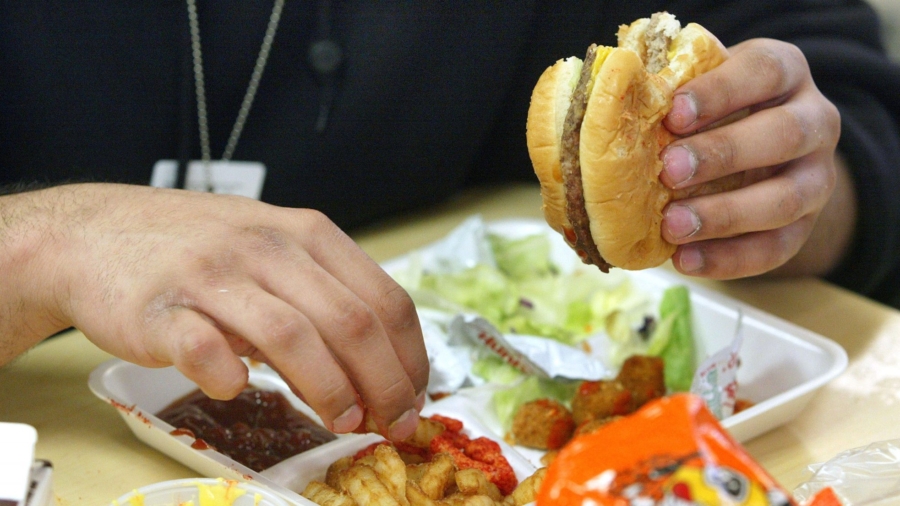A Pennsylvania school district is warning that children could end up in foster care if their parents do not pay overdue school lunch bills.
The letters sent recently to about 1,000 parents in Wyoming Valley West School District have led to complaints from parents and a stern rebuke from Luzerne County child welfare authorities.
The district says that it is trying to collect more than $20,000, and that other methods to get parents to pay have not been successful. Four parents owe at least $450 a piece.
The letter claims the unpaid bills could lead to dependency hearings and removal of their children for not providing them with food.
“You can be sent to dependency court for neglecting your child’s right to food. The result may be your child being taken from your home and placed in foster care,” the letter read.
After complaints, district officials announced they plan to send out a less threatening letter next week.
Luzerne County’s manager and child welfare agency director have written the superintendent, insisting the district stop making what they call false claims.
Their letter calls the district’s actions troubling and a misrepresentation of how the Children and Youth Services Department and its foster care program operate.
Wyoming Valley West’s lawyer, Charles Coslett, said he did not consider the letters to be threatening.
“Hopefully, that gets their attention and it certainly did, didn’t it? I mean, if you think about it, you’re here this morning because some parents cried foul because he or she doesn’t want to pay a debt attributed to feeding their kids. How shameful,” Coslett told WYOU-TV.
The district’s federal programs director, Joseph Muth, told WNEP-TV the district had considered serving peanut butter and jelly sandwiches to students with delinquent accounts, but received legal advice warning against it.
School district officials say they plan to pursue other legal avenues to get the lunch money, such as filing a district court complaint or placing liens on properties.
For the coming year, the district will qualify for funding to provide free lunches to all students.
The district underwrote free lunches for four elementary and middle schools during the 2018-19 year, and WNEP-TV said school officials suspect some parents did not pay their lunch bills as a form of protest.
In school-lunch related news, a Rhode Island school district reversed its decision to start serving cold sandwiches instead of hot lunches to students whose families owe lunch money.
Warwick Public Schools had said it would serve sunflower butter and jelly sandwiches to students whose families are in arrears, beginning on May 13, sparking a public backlash and upsetting the mayor, who asked the school committee to reconsider. The district said it was owed about $77,000 for lunches and couldn’t absorb more debt.
Some parents set up an online fundraiser to cover the outstanding debts.
“The Warwick Public School System has an outstanding balance of $77,000 for unpaid school lunches,” said the fundraiser description. “Let’s come together and pay it for the kids, so no one has to be singled out and embarrassed by being denied hot lunch.”
School Committee Chairwoman Karen Bachus said Wednesday on Facebook that committee members have now recommended that students get their choice of lunch regardless of their account status. About 1,650 students owed money.
About 70 percent of those students are not enrolled in the program for free or reduced-price lunches, Bachus added.
All public schools in Rhode Island are mandated by state law to provide lunches, and nearly 70 percent of those meals are served for free or at a reduced price.

To qualify for free meals, children must come from families with an income below 130 percent of the “poverty level.”
Reduced price meals ($.40 or less) are available for those at 130-185 percent of the poverty level.
Above this level, the school or institution sets the price.
Bachus said they’re also working with attorneys on a way to accept donations to help settle lunch debt, after a local restaurant owner, Angelica Penta, said the district twice turned down the offer to donate $4,000.
“They don’t want parents getting upset if their child’s lunch gets paid for, but if they are going through hard times they may need help,” she wrote on Facebook. “I come up with several different ideas and they were all shut down. Please if anyone has any ideas how we can stop this please let me know.”
Penta was one of many people who weighed into the intense debate on social media.
While some labeled it as “food shaming” the poor, other parents encouraged each other to help settle any outstanding debts with donations.
About $14,000 was collected from families with outstanding balances after the cold sandwich policy was announced, Bachus said.
She said they’re seeking to find a balance between being fiscally responsible and ensuring that all students get a healthy, nutritious lunch.

Critics say such lunch debt policies shame children for something outside of their control. Pending legislation would change state law making free hot lunches available for all students regardless of income.
Epoch Times reporter Simon Veazey contributed to this article.


